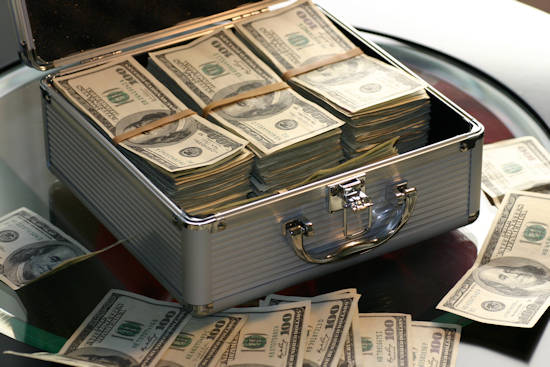What’s the Difference Between a Recession and a Depression?
Before we learn to prepare for a recession, we might want to know what one is.
There is an old joke, “A recession is when your neighbor loses his job, and a depression is when you lose yours”. All joking aside, there has been some discussion recently about what actually constitutes a recession. One simple definition is two successive quarters of declining Gross Domestic Product (GDP).
Another definition says, “A recession has occurred when the National Bureau of Economic Research (NBER) says it has”. NBER is supposed to be a non-partisan group of economic experts (primarily professors) who look at a variety of economic indicators and then declare that a recession has started (or ended). Generally, it takes them a while to make that declaration. So their pronouncement is usually well after the fact. Currently, we have already met the first definition, but we are still waiting for NBER to make its pronouncement. The reason for their hesitancy might well be due to the very low unemployment rate. Typically a recession involves rising unemployment. And that hasn’t happened… yet. But either way, the economy is starting to sputter, and when it falls, we will be in a recession… no matter exactly when it started.
1) Ensure Your Return of Principal
No, we aren’t talking about the head of a school. The word “principal” can also mean “a capital sum, as distinguished from interest or profit,” i.e. the amount you invest with the intention of making a profit. If you put money in the bank, that is the principal. The interest that the bank pays you is the “Return on Principal”. During good times you are trying to maximize your return on the principal in order to grow your wealth. So, you might be willing to accept higher risk in order to get a higher return.
During a recession, however, you need to be more concerned about the return OF your principal than your return ON your principal. During bad times promises are cheap, and capital is scarce, so everyone is trying to get you to invest your principal with them. But many of them will end up bankrupt so they are willing to pay anything (or at least promise to pay anything) in order to get more capital.
Currently, the Chinese housing industry is in one of those periods. In our article “The Age of Empires,” we discuss the collapse of the Chinese “Ponzi Scheme” that was once the booming Chinese housing industry. People couldn’t afford housing, so companies created a scheme where people could take out a mortgage on “pre-construction” highrises with the promise that they would get a discounted price and be first in line when the projects were completed. However, very few were actually completed (and probably never will be), although many were started. When people discovered that the companies were in distress, they stopped paying on their mortgages, thus making the companies even less likely to be able to complete the housing projects.
So, the rule is that when times get bad, it is more important to be able to get your money back, even if the rate of return is very low.
2) Have Plenty of Cash Reserves
During a recession, “Cash is King”, and almost everything else is depreciating in value. So it is extremely important to have plenty of cash and cash equivalents.
So, in addition to keeping your principal safe, it is important to have plenty of “cash reserves”. This doesn’t necessarily mean greenbacks under the mattress (although having some extra actual dollars in hand is part of it). You can’t always count on being able to access your money unless it is physically in your hands. Many people around the world have woken up one morning just to find out that the government has declared a “bank holiday” i.e. banks are closed (or restricted to how much you can withdraw) until the government decides otherwise. In Venezuela just a few years ago, this setback was combined with massive hyperinflation so that the amount they were actually allowed to withdraw in any one day was roughly equivalent to the cost of bus fare.
In addition to cash, you should also have a good portion of your assets in “cash equivalents” such as a checking account, savings account, money market accounts, and other fixed denomination assets.
By “fixed denomination,” I mean any account where the value doesn’t appreciate (or depreciate) but instead they promise to return your exact principal (plus interest) upon demand. Stocks are NOT in this category, as they can lose 50% (or more) of their value during a recession. Neither are bonds (since they can’t be redeemed on demand but are valued by the market until maturity). The key idea is to have ready capital that you can use to cover your expenses in case of an emergency, loss of job, or in the best case scenario, in order to take advantage of financial opportunities that develop when everyone else is short of cash, i.e. at the bottom of a recession (but not before). This is how Warren Buffett made his Billions. He accumulates cash during good times and then invests it when everyone else is desperate for capital.
3) Become More Self-Sufficient

During recessions, things become less “orderly”, stocks crash, banks close, companies fail, supply chains get disrupted, money is scarce, people lose their jobs, etc. So, the more things you can do for yourself, i.e., the more self-sufficient you are, the better prepared for surviving a recession you will be. If you can provide some of your own food, you won’t be as dependent on others for your actual survival. This can involve gardening, raising chickens, fruit trees, aquaponics, etc. If you live in the city and you can’t do any of these things, you should stockpile non-perishable foods like rice, canned goods, dried beans, pasta, etc. You should also have a way to cook them that isn’t dependent on outside utilities i.e. electricity and natural gas. Having these things on hand not only helps during an economic breakdown (i.e. recession), but they also come in handy during climate disasters like hurricanes, ice storms, floods, etc. They are also helpful during riots when it is dangerous to leave your home (just ask Portland, Oregon residents who lived in the cordoned-off area of the city.
4) Reduce Debt

During a recession, it becomes more difficult to meet your debt obligations either because you lost your job, your hours were cut, your salary reduced, or simply because things became more expensive. Living a low debt / no debt lifestyle can help you weather this type of financial storm. Otherwise, you face such distasteful prospects as foreclosure/eviction, car repossession, etc. By owning everything free and clear, you don’t have to worry about someone showing up to take it away from you if you can’t make the payments. So, rather than owning stocks that can depreciate in value, it is better in a recessionary scenario to sell the stocks and pay off debt. You could also sell unused stuff (before everyone starts hoarding their cash) and use that money to pay off debt.
Conclusion:
Recessions are stressful times, and it pays to be prepared for recession both physically and financially. Those who are best prepared will suffer the least and could even profit as Warren Buffet has done in recessions past.
You might also like:
- 7 Ways to Lower Your Household Bills
- How To Recover Financially When You Have A Bankruptcy
- Getting Your Finances in Order for the New Year
- Save Money by Slashing Your Utility Bills
- 5 Ways You Can Save More Money Every Month
- How to Manage Your Wealth During Difficult Financial Times
- Happy Home: How to Balance Your Budget During Trying Times

